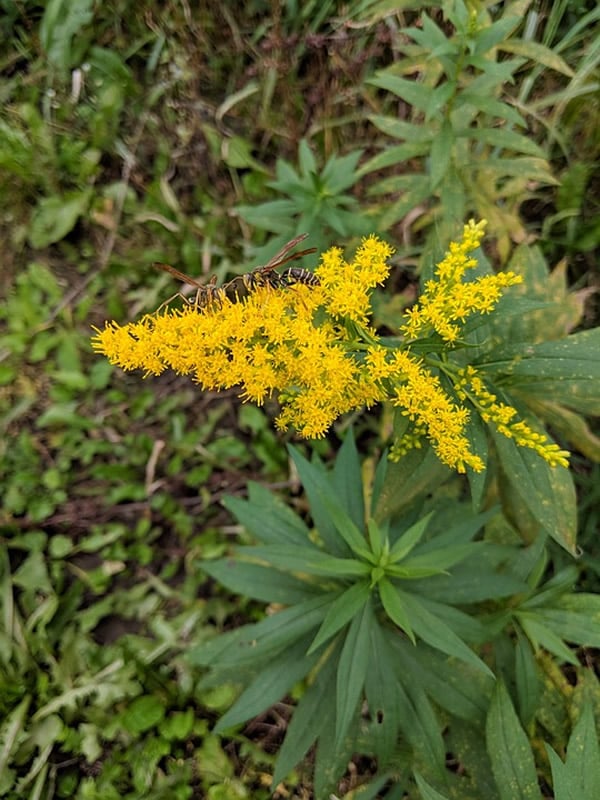Summary: Compounds derived from common ragweed may help in the fight against Alzheimer’s disease. Researchers report when two of the most active compounds were added to a sample of neurons producing amyloid beta, 20% more cells survived than without exposure.
Source: ACS
As spring arrives in the northern hemisphere, many people are cursing ragweed, a primary culprit in seasonal allergies. But scientists might have discovered a promising new use for some substances produced by the pesky weed. In ACS’ Journal of Natural Products, researchers have identified and characterized ragweed compounds that could help nerve cells survive in the presence of Alzheimer’s disease (AD) peptides.
Those with AD, a neurodegenerative disorder, often have impaired judgment, cognition, memory and behavior. Scientists have linked AD to the accumulation of amyloid-β (Aβ) peptides in the brain, which form plaques that kill nerve cells. Unfortunately, the five drugs currently approved for AD treatment only delay disease progression for a short time. When Won Keun Oh and colleagues screened 300 natural plant extracts for activity against AD in a preliminary study, they found a surprising candidate: Ambrosia artemisiifolia (common ragweed). This invasive weed, native to North America, has now spread to South America, Asia and much of Europe. Oh and colleagues decided to isolate and characterize the structures of ragweed compounds responsible for this neuroprotective activity.

The researchers isolated 14 compounds from whole ragweed plants that appeared to protect neurons from Aβ-induced toxicity. They determined the structures of the compounds with nuclear magnetic resonance, mass spectrometry and other analytical techniques. Seven of the chemicals, including terpenoids and spermidine conjugates, had been described previously, but the remainder were newly identified terpenoids. When the researchers added the two most active new compounds to a lab dish that contained neurons producing Aβ, about 20 percent more cells survived than without treatment.
Funding: The authors acknowledge funding from the National Research Foundation of Korea.
Source:
ACS
Media Contacts:
Katie Cottingham – ACS
Image Source:
The image is in the public domain.
Original Research: Closed access
“Eudesmane Glycosides from Ambrosia artemisiifolia (Common Ragweed) as Potential Neuroprotective Agents”. Jin-Pyo An, Thi Kim Quy Ha, Hyun Woo Kim, Byeol Ryu, Jinwoong Kim, Junsoo Park, Chul Ho Lee, and Won Keun Oh.
Journal of Natural Products. doi:10.1021/acs.jnatprod.8b00841
Abstract
Eudesmane Glycosides from Ambrosia artemisiifolia (Common Ragweed) as Potential Neuroprotective Agents
In Alzheimer’s disease, amyloid-β (Aβ) accumulation in the brain results in neuronal cell death and is one of the major causes of dementia. Because the current therapeutic agents are not yet sufficiently effective or safe, there have been attempts to find new neuroprotective chemicals against Aβ-induced cytotoxicity. A 70% EtOH extract of whole plants of Ambrosia artemisiifolia (common ragweed) was selected after the screening of a natural extract library. Seven new eudesmane-type glycosides and seven known compounds were obtained through bioactivity-guided fractionation from the aerial parts of this plant. Their structures were determined on the basis of their nuclear magnetic resonance spectra, high-resolution electrospray ionization mass spectrometry analysis, and electronic circular dichroism calculations. Among them, compounds showed protective effects against Aβ-induced cytotoxicity in Aβ42-transfected HT22 cells. The most active compounds, exhibited moderate protective activity dose-dependently (10, 20, and 40 μM).







